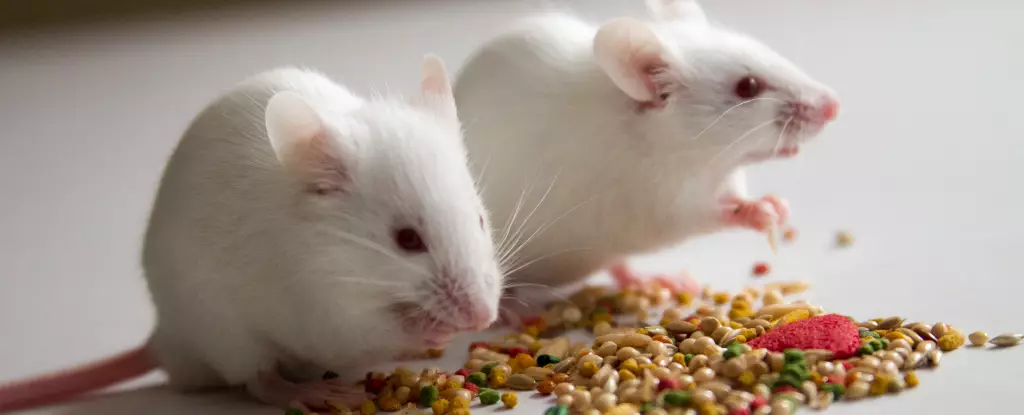Recent scientific investigations have shed light on the complex relationship between caloric intake, metabolism, and overall lifespan. A groundbreaking study involving nearly 1,000 genetically diverse female mice has revealed both the promising and problematic aspects of caloric restriction as a potential strategy for enhancing longevity. While a multitude of experiments conducted over the years, ranging from fruit flies to primates, has demonstrated a consistent pattern: limiting caloric intake often leads to extended lifespans. However, ethical constraints in conducting similar longitudinal studies on humans make it difficult to apply these findings directly to our species.
The results of the latest research have reaffirmed previous conclusions that a certain degree of dietary restriction may provide significant health benefits, including weight reduction and lower cardiometabolic risks. Yet, it is crucial to navigate these findings with caution, given the limited duration and scope of many studies that have explored the impact of calorie reduction on human health.
The Metrics of Caloric Restriction
In the recent mouse study, the participants faced varying degrees of caloric intake, with those undergoing the most rigorous reductions losing nearly 25% of their body weight over the course of their lives, while their counterparts on standard diets actually gained weight. Interestingly, the heavily-caloric restricted mice boasted a lifespan that exceeded their well-fed peers by roughly nine months—the equivalent of a 33% increase in lifespan. However, a deeper examination of these results unveils a more nuanced and complex picture.
Within these groups, the variations in survival rates were significant, suggesting that the universal benefits of caloric restriction may not be as clear-cut as initially posited. The data indicate that the correlation between reduced calorie consumption and increased lifespan may be overshadowed by genetic factors. Mice retaining higher body weights had surprisingly better survival outcomes, which raises questions about the metabolic mechanisms at play.
The findings suggest that genetic diversity plays a pivotal role in determining longevity among the studied mice. Certain mice exhibited an impressive level of resilience, maintaining larger populations of infection-fighting white blood cells and demonstrating reduced variability in red blood cell sizes. These observations imply that longevity may be more closely linked to factors such as the immune response and genetic predisposition, rather than merely caloric restriction alone.
The fact that some heavier mice outperformed their lighter peers challenges the conventional wisdom that weight loss is the primary pathway to longevity. Rather, the research hints at a more intricate web of interactions influencing survival, emphasizing the importance of physiological robustness over simplistic dietary rules.
When considering what these findings might mean for humans, it is essential to recognize the biological differences between species. While the potential advantages of dietary restrictions are clear, translating these benefits into human contexts requires meticulous consideration and further research. Observational studies focused on intermittent fasting have suggested that even moderate dietary adjustments can yield health benefits, but the exact mechanisms remain elusive.
Moreover, it is essential to ponder the quality of life alongside the quantity of years lived. Although caloric restriction can theoretically lead to extended lifespans, maintaining robust health and a high quality of life throughout those years is equally, if not more, crucial.
Ultimately, the conversation surrounding caloric intake and health must embrace a balanced perspective that considers both the potential benefits and harms of reduced caloric consumption. While there is no denying evidence pointing toward possible life-extending properties associated with dietary restriction, we must remain cognizant of individual genetic differences and the broader implications for human health. As research progresses, we will undoubtedly uncover more intricate factors influencing longevity, guiding us in constructing diets that do not only aim to extend lifespan but also promote overall health and well-being throughout our lives.


Leave a Reply